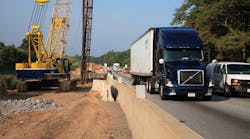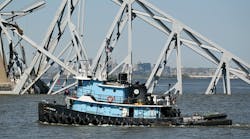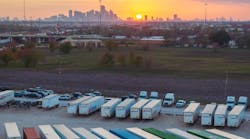A survey conducted at the 84th U.S. Conference of Mayors winter meeting found that aging and underfunded physical infrastructure is the greatest shared challenge facing the nation’s major cities, with mass transit and roads topping the list of “big ticket” infrastructure needs.
In partnership with The Boston University Initiative on Cities, the 2015 Menino Survey of Mayors detailed what are described as “the most pressing needs and policy priorities of mayors,” with aging urban infrastructure, policing needs, municipal finance, topping the list.
The survey – named in honor of the late Thomas Menino, a former mayor of Boston – highlighted the need to fix crumbling roads, expand mass transit, and repair water infrastructure as the top concerns among the 89 U.S. mayors polled, regardless of party affiliation or political ideology. Other key findings include:
- Nearly 50% of the mayors polled overwhelmingly believe that physical infrastructure is one of the greatest challenges facing their city. Economic structure, the next “biggest local challenge,” only topped the list among 19% of the mayors surveyed.
- Topping their list of infrastructure needs, overwhelmingly, is roads. The top three needs prioritized by those mayors in the survey were roads (over 60%), mass transit (41%) and water/wastewater/storm water infrastructure (41%).
- If mayors were the sudden beneficiaries of a large unrestricted capital grant to devote to a specific project, they would invest in mass transit (22%), roads (20%), and water, wastewater and storm water infrastructure (18%).
- However, if they received a smaller unrestricted capital grant that they could devote to just one project, mayors would invest in bike and pedestrian infrastructure (20%), parks (19%), roads (15%) and municipal buildings (14%).
- While mayors most often must partner with state and federal government to address infrastructure priorities, the majority say they’re “not confident” that either will adequately help them solve such challenges.
- More than 70% of mayors supported the tradeoff favoring improved bike accessibility in their city, even if it comes at the expense of parking and driving lanes.
- Democratic and Republican mayors differ in their level of support for street designs that favor cyclists over drivers, with 44% of Republican and 81% of Democratic mayors endorsing improved bike accessibility.



